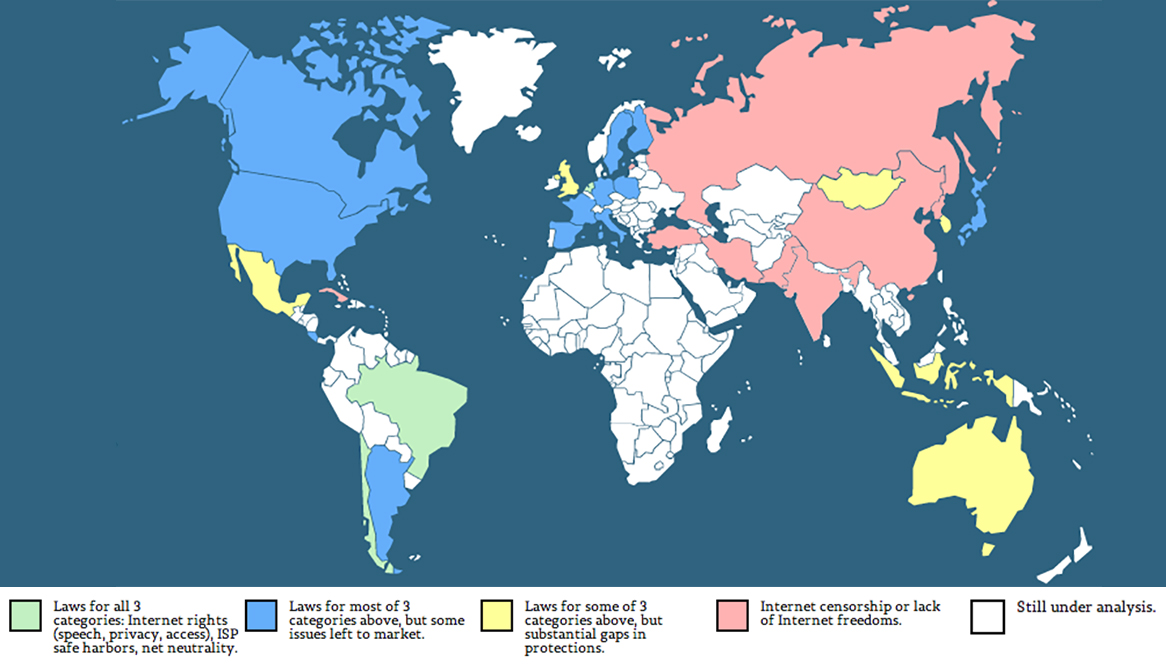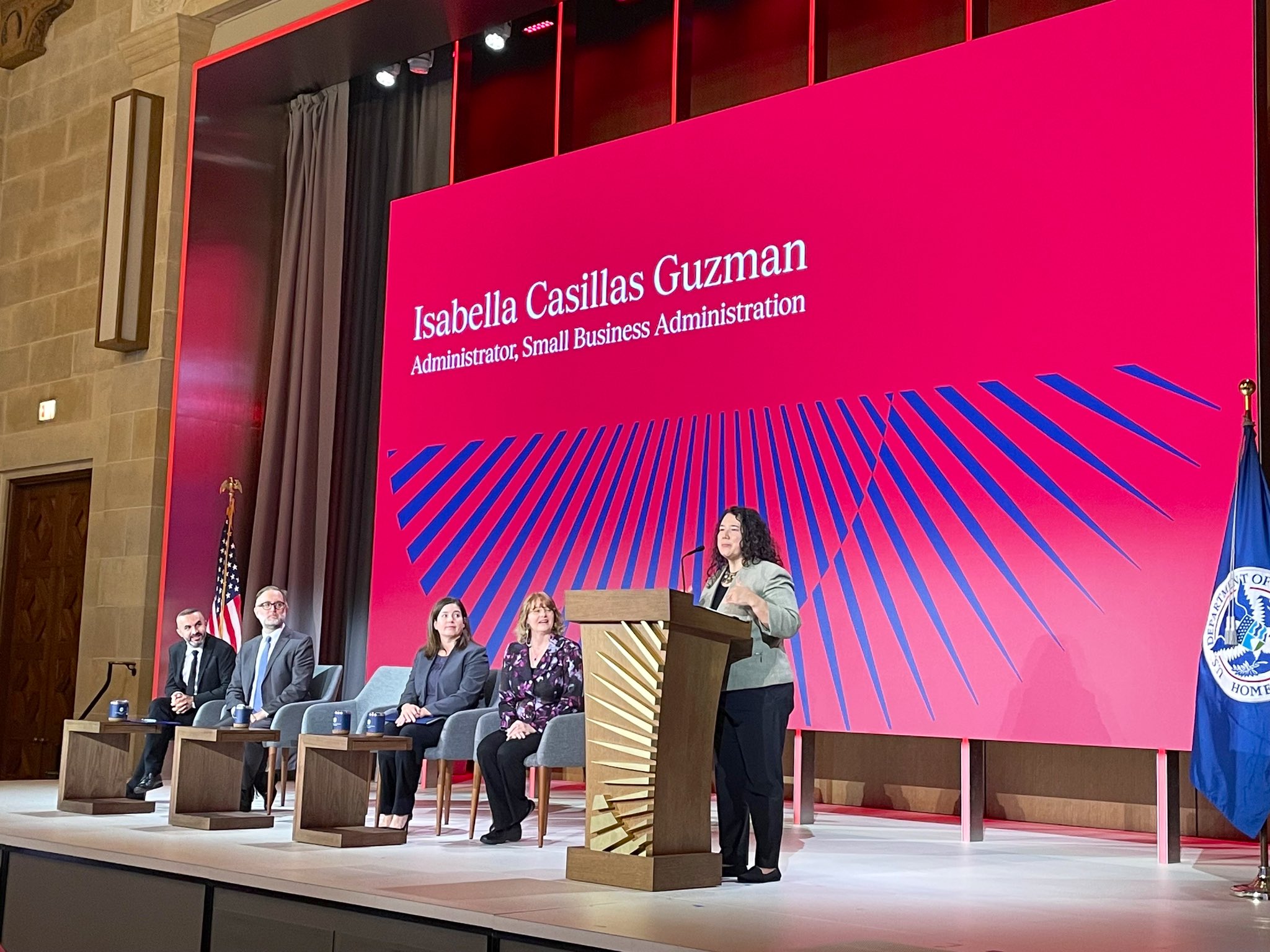
For internet freedom, visit South America
South America has more countries with laws that protect internet freedom than Europe, North America, Asia and every other area of the world.
There are just three countries in the world that have laws protecting internet free speech, privacy, access as well as net neutrality and ISP safety. Two of the three are in South America.
When it comes to freedom and equality online, most of the world is still lagging behind, whether held back by censorship like in India or Cuba, infringements on privacy like in the United States or the absence of net neutrality legislation like in the United Kingdom and much of the European Union.
Brazil, Chile and the Netherlands are the only three countries with laws that protect internet rights, ensure safety for internet service providers (ISPs) and preserve net neutrality. So what can the rest of the world learn from those countries that let freedom reign online?
Brazil
In 2014, Brazil became passed the world’s first Internet bill of rights, "Marco Civil da Internet.” The comprehensive legislation protects speech, privacy and personal data while banning traffic discrimination (i.e. preserving net neutrality, the idea that users and content producers online should operate on a level playing field with the same speeds). On top of that, Brazil’s bill also requires a court order before ISPs much take down content with copyright infringement so that ISPs cannot be held liable for the infringement unless they refuse to follow the order.
In contrast, the United States has no protections of net neutrality and may soon allow ISPs to charge different rates for faster delivery; has loopholes in security, including the broad power given to the National Security Agency; and has unclear guidelines on when, exactly, an ISP should be held accountable for alleged copyright infringement.
Brazil even has a vague article that recognizes the right to Internet access, but is unclear on what the government’s involvement should be to get more people online. Just under 50 percent of the population has internet access.
Chile
The world’s first net neutrality law passed four years ago in Chile. Like Brazil, Chile also has a law requiring a court order to take down alleged copyright infringing content online. And while free speech and privacy are protected by law, it is undermined by other legislation, namely defamation laws that criminalize insults to public officials. That essentially means trolling can be punishable by law. But the government is more likely to use the law as a tool to silence critical journalists. That’s one reason why Freedom House has ranked Chile’s press freedom status as partly free in its annual report.
While Chilean citizens have no legal right to internet access, more than 66 percent of its population are online — a much higher rate than Brazils’.
Netherlands
The Dutch Constitution protects privacy and freedom of expression, but like Chile, criminalizes defamation, specifically when it comes to royalty. The Netherlands even became one of the first to rule in favor of the right to be forgotten online, which essentially mandates that search engines like Google to get rid of personal data, although there are some exceptions to the rule like reports of criminal convictions. The country is also one of the first in the EU to protect net neutrality, barring service providers from charging different rates for service.
There’s no legal right to internet access in the Netherlands, but 93 percent of the population is online, one of the highest rates in the world. In contrast, around 84 percent of Americans are online.










LEAVE A COMMENT:
Join the discussion! Leave a comment.